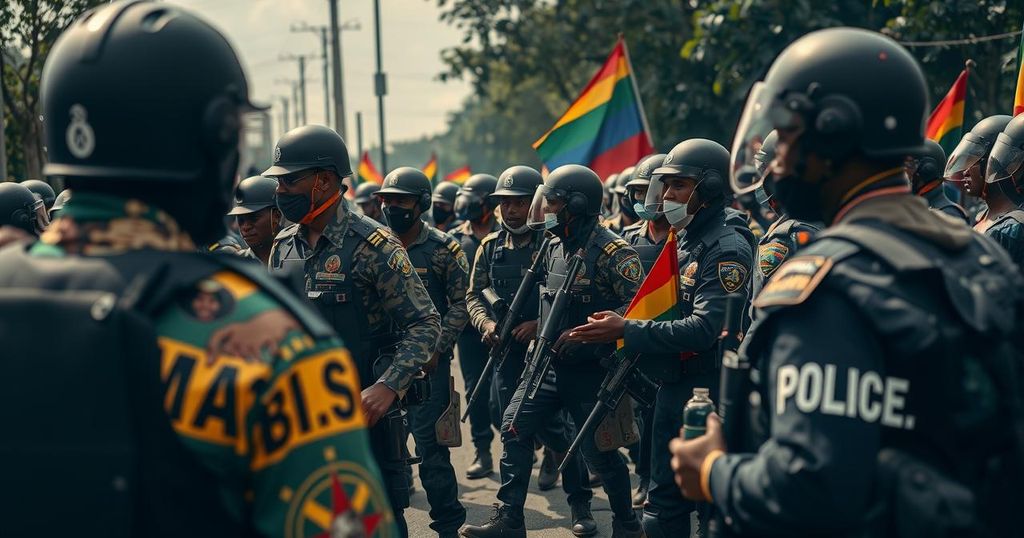In Mozambique, protests erupted following the disputed election results, resulting in the tragic deaths of young demonstrators, including a 16-year-old boy shot by police. Eyewitness accounts and human rights organizations report high casualties and police violence, raising concerns about governance and public safety in the country. Citizens, disillusioned with the ruling party, have taken to nightly protests, further highlighting the political tensions in this southern African nation.
In Maputo, Mozambique, a tragic incident occurred during protests against the recent presidential election results, leading to the death of a 16-year-old boy, Antonio Juaqim, who was protesting by banging pots and pans. Eyewitness accounts revealed that police shot at demonstrators, prompting international concern over the use of lethal force against children and protesters. Amid rising tensions following the electoral victory of the ruling Frelimo party, many citizens, led by opposition figures, have voiced their dissent through nightly protests. Campaign groups like Human Rights Watch report that approximately 40 individuals, including children, have lost their lives amid these protests, highlighting the increasing volatility and the dire need for accountability regarding police actions.
The political landscape in Mozambique has significantly changed following the electoral announcement. Frelimo’s candidate, Daniel Chapo, was declared the winner of 71% of the votes; however, allegations of election rigging surfaced from the opposition, notably by Venâncio Mondlane, who fled the country fearing for his safety. In response, citizens began protesting the results, which have left a youth demographic increasingly disillusioned with their government. This protest trend, characterized by banging pots and pans at designated times, has become a communal symbol of resistance against Frelimo’s long-standing rule.
The situation in Mozambique has escalated following the contentious results of the October presidential election, which has been marred by allegations of fraud and violence. Frelimo, which has governed since the country gained independence, faced significant opposition from a coalition of dissatisfied citizens and ex-opposition party members. The inherent frustrations among the youth, particularly regarding social and economic opportunities, have catalyzed these protests. Tragically, the protests turned violent, leading to reports of police brutality and casualties, including children, which underscore the serious implications of the government’s response to dissent.
The crisis in Mozambique underscores the fragility of the political environment amid allegations of electoral misconduct and state-sanctioned violence against citizens. The killings of unarmed protesters, particularly children, while they exercised their right to dissent, illustrate a troubling trend that demands international scrutiny and a reassessment of political practices in Mozambique. Moving forward, it is imperative for the government to address these issues transparently to mitigate further unrest and restore public trust.
Original Source: www.bbc.com






